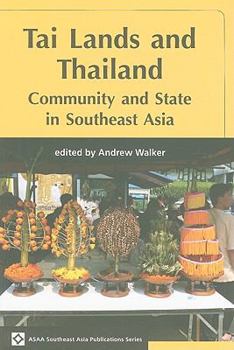Tai Lands and Thailand: Community and the State in Southeast Asia
(Part of the ASAA Southeast Asian Publications Series Series)
Studies of the Tai world often treat "state" and "community" as polar opposites: the state produces administrative uniformity and commercialization while community sustains tradition, local knowledge, and subsistence economy. This assumption leads to the conclusion that the traditional community is undermined by the modern forces of state incorporation and market penetration. States rule and communities resist.
Tai Lands and Thailand takes a very different view. Using thematic and ethnographic studies from Thailand, Laos, Burma, and southern China, the authors describe modern forms of community where state power intersects with markets, livelihoods, and aspirations. Modern community is not easily created nor is it inevitable, but rapid social and economic change in the Tai world has provided many opportunities for new forms of communal belonging to emerge. Tai Lands and Thailand opens up fresh perspectives on a region in transition, and the discussion promises to inform future studies of contemporary sociality in Southeast Asia.Format:Paperback
Language:English
ISBN:0824833597
ISBN13:9780824833596
Release Date:July 2009
Publisher:University of Hawaii Press
Length:270 Pages
Weight:0.90 lbs.
Dimensions:0.6" x 5.9" x 8.9"
Customer Reviews
0 rating





